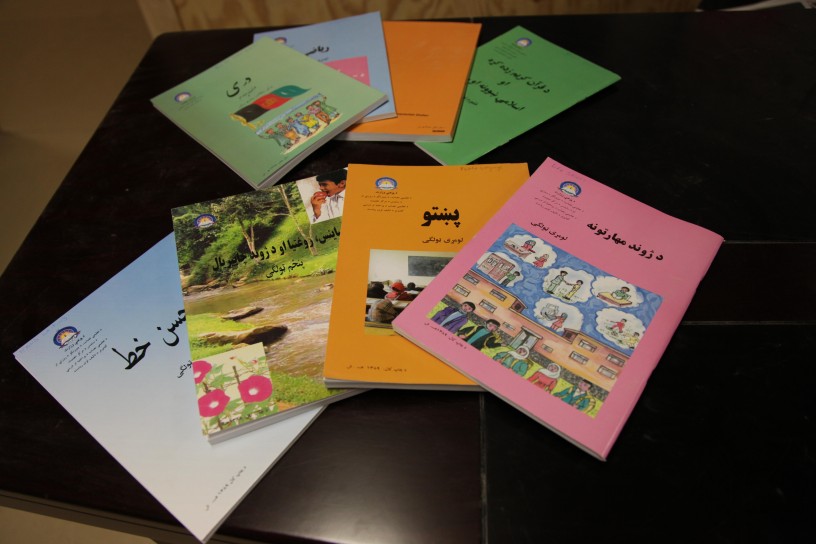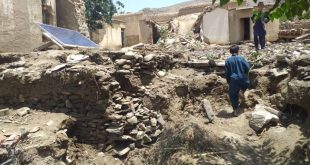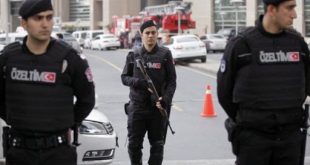Students of higher secondary classes attending schools without books| Officials provided misleading data to donors| International partners deny financial support to publish Islamic studies books| PC members meddle in university entrance exams
Abdul Zuhoor Qayomi-KABUL: Unveiling the deplorable condition of education in Afghanistan, Minister of Education revealed that there were many ghost schools in insecure parts of the country.
Summoned by the Wolesi Jirga (WJ) or Lower House of the parliament, Muhammad Hanif Balkhi said that since his appoint as minister he found several ghost schools in the country.
“Funds are issued to the ghost schools. These schools, which are only on papers, are also getting facilities. Before my appointment, officials were providing incorrect information to get more donations,” he said. However, he did not provide exact details such as number of ghost schools.
Talking about the solution, the minister said that he has assigned a commission to assess performance of the education sector and bring transparency.
The minister said that donors’ trust had been eroded in the past seven months, as the caretaker ministers were not performing their duties efficiently.
“Donors have complained about lack of transparency in Ministry of Education. Representatives of the donors including the World Bank, UNESCO, Global Partnership of Education (GPE) and others in a meeting told me that there was no transparency in the ministry,” said Balkhi.
He added that misleading data was provided to the donors in the past that hurt their trust.
Balkhi further said that higher secondary schools do not have books, though the academic year has started two months ago. “Although, sufficient amount was collected in donations and the government has its own funds as well, but the books were not published for the primary and secondary schools,” he revealed while blaming the caretaker minister for the problem.
He said that the USAID and other partners have promised to provide funds for publishing the books. The minister added that seven million books would be published in the country within next 20 days.
Regarding delay in printing of the Islamic Studies books in the past five years, he said that international donors were not interested in providing funds to print the Islamic Studies textbooks for schools.
Balkhi went on to say that the United Arab Emirates have shown interest to print the books for the primary classes.
Students of the state-run schools have complained several times about shortage of the textbooks.
Schools that do not provide quality education service were also discussed in the session. The minister said that there are 263 schools in the country that do not meet the outlined standards.
He said the schools would be merged together to improve their standard. “Hostels will be constructed in these schools. Skilled teachers will also be hired. The ministry also planned to establish one to two high standard professional institutes in the capital of the provinces in order to provide optimum quality education service to students,” said the minister.
As many as 80,830 students, including 15 percent female, are enrolled in technical and vocational schools. At least 2,375 teachers, including 24 percent female, are working in 263 vocational schools. The ministry would produce 28, 0000 to 3 00,000 high school graduates in 2015 and around 3, 10000 in 2016, he said.
Minister for Higher Education, Farida Mohmand, was also summoned by the WJ. She acknowledged that influential people were interfering in the university entrance exams. According to her, members of the provincial councils were also trying to influence the entry tests.
She vowed that changes would be brought in the university entrance exam to ensure transparency.
Speaking about the private universities, the minister said that these varsities were vital because the state-run universities had limited capacity and could not enroll all students.
Responding to a question, she accepted that some of the private higher education institutes were not providing quality education service. She said the ministry has stopped issuing registration to new universities in order to make sure that the already established private varsities had enough facilities.
There are nearly 111 private higher education institutes in the country. According to the higher education minister, another deputy minister is required to assess performance of the private universities.
 Afghanistan Times
Afghanistan Times




